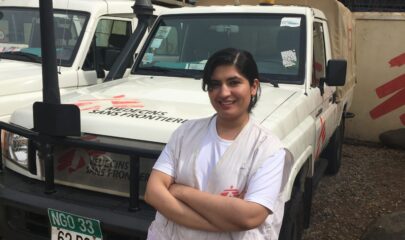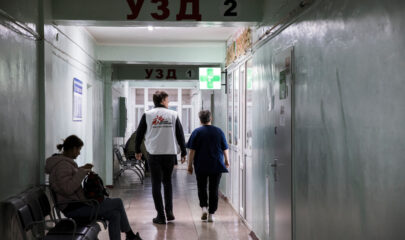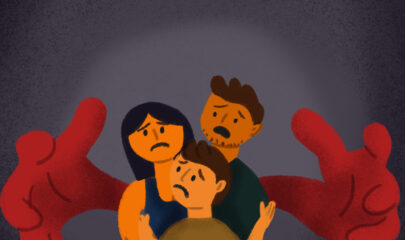As fighting displaces thousands of people in north and south Kivu, MSF is concerned about spread of disease due to over- crowded, unsanitary living conditions.
After two years of conflict, fighting between the M23 armed group and the Congolese army and its allies in North Kivu province, Democratic Republic of Congo (DRC) intensified in late January. The violence has now reached the border with South Kivu province, causing new mass displacement. According to the UN’s migration agency, more than 1.6 million people have been forced to leave their homes since March 2022, in a region already devastated by 30 years of conflict.
WHAT ARE THE DIRECT CONSEQUENCES OF THIS NEW OUTBREAK OF VIOLENCE?
Violent clashes in Masisi territory, North Kivu, early this year led to a new exodus around Sake and towards Goma, the provincial capital. Nearly 250,000 people fled in just 10 days. They are sheltering with host families and in unofficial displacement sites, mostly west of Goma, where families are crowded into makeshift shelters that offer little to no protection from the rain. People tell us it’s a struggle to get food and clean drinking water. Hundreds of people are forced to share just one toilet and they have nowhere to wash.
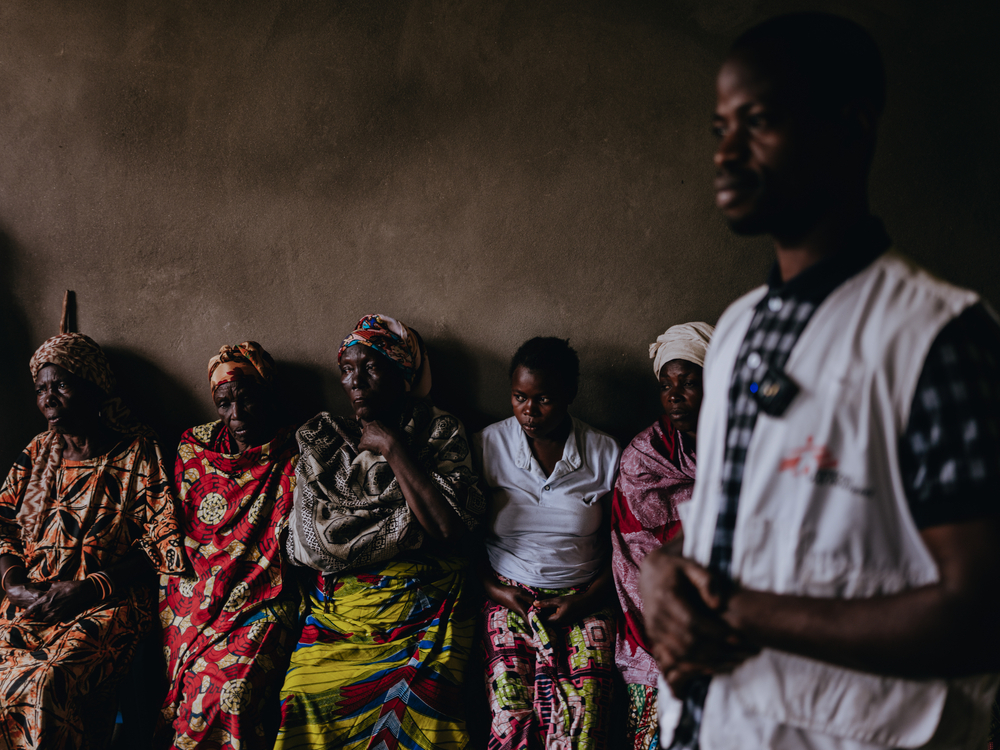
local people and those who are displaced. In particular, he shares how to assist a survivor of violence and where to refer them for medical care. Democratic
Republic of Congo, 2024. © Hugh Cunningham
One woman who recently fled to Goma told us how she left with nothing but her children and the clothes on her back. She was forced to flee several times as the conflict spread. Now she lives in the camp, suffering every day, but it is too unsafe for her to return home.
The two hospitals and several health centres supported by Doctors Without Borders/ Médecins Sans Frontières (MSF) in Masisi territory have received influxes of patients wounded in the violence. Over the past two months, MSF teams in the Ministry of Health-run hospital in Mweso treated more than140 people, mostly for gunshot wounds and injuries from explosions. The main access roads to the north, west and south of Goma are inaccessible because of fighting and insecurity, so it is extremely challenging to get supplies to these facilities. This has severely hindered access to humanitarian and medical support for hundreds of thousands of people in Masisi territory.
People’s illnesses are related to deteriorated living conditions.
In parallel, fighting on the border between North and South Kivu has caused tens of thousands of people to flee, mainly southwards towards Minova city, which was already hosting many people who are displaced. People are sheltering wherever they can, including in schools and dozens of different sites. Some of the health structures we support have been overwhelmed with patients suffering from illnesses related to people’s deteriorated living conditions.
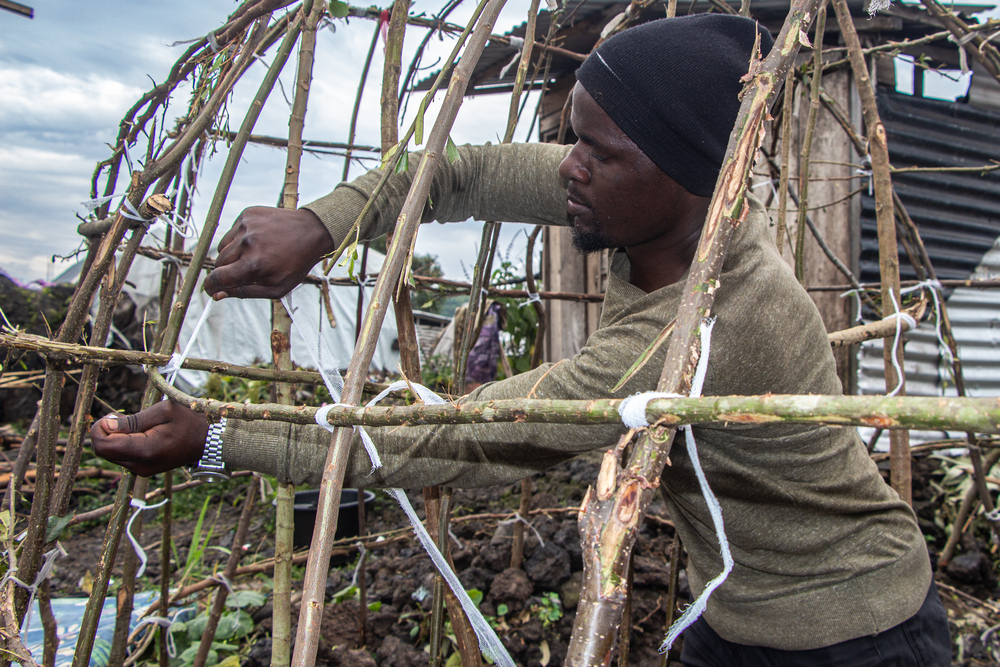
WHAT ARE MSF’S BIGGEST HEALTH CONCERNS FOR PEOPLE?
We fear a flare-up of diseases, in particular, cholera, as fighting is forcing thousands of people to settle in overcrowded and unsanitary sites. Combined with the lack of access to clean water, this creates the perfect conditions for cholera to spread. MSF has been dealing with cholera in some of the camps for months, so the new influx of people is likely to exacerbate the outbreak.
The health situation in these provinces was already dire before the resurgence of this conflict due to low vaccination coverage among children under five years of age. Coverage is the lowest in about 30 years, according to the World Health Organization. The poor functioning of health facilities, notably due to shortages of medications and a lack of trained health professionals, also contributes.
MSF teams have supported the local authorities to respond to recurring epidemics of measles and cholera, which spiked last year after peaks of mass displacement. We also provide support to help increase access to general and specialized healthcare, particularly in more remote health zones such as Masisi, Mweso or the Hauts Plateaux of the Minova health zone.
WHAT ARE THE RISKS FOR THE PEOPLE IF THE NUMBERS OF CHOLERA CASES INCREASE?
This disease can be fatal if not treated in time. Children are the most vulnerable and can die from cholera in just a few days. Depending on the severity of their illness, most patients need rapid oral or intravenous rehydration. Some people can be treated in the community by setting up oral rehydration points. MSF teams have treated thousands of patients for cholera in displacement sites in and near Goma in recent months.
The increase in cholera cases is directly linked to the lack of hygiene and safe drinking water and sanitary facilities such as clean latrines and showers.
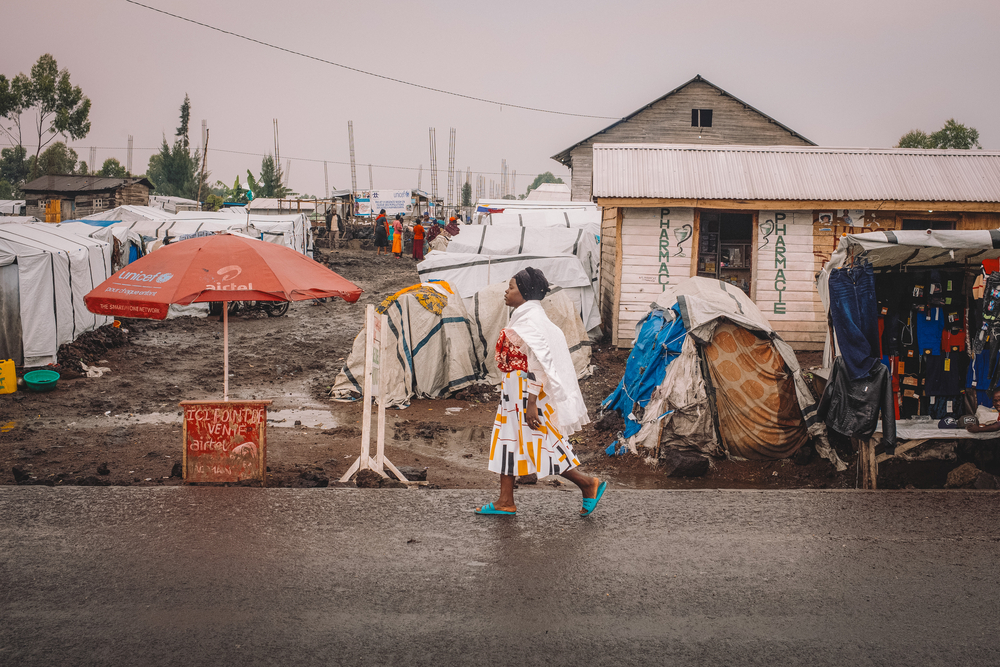
Congo, 2024. © Philémon Barbier
WHAT IS MSF DOING TO PREVENT AN OUTBREAK?
In response to the complete lack of potable water, MSF built a water pumping and chlorination station on the shores of Lake Kivu last year that pumps and disinfects up to two million litres of potable water every day. We also distributed hundreds of thousands of litres of drinkable water per day by truck in displacement sites and constructed latrines and showers. This is only an emergency response and not enough to meet the needs, even more so with the new arrivals. Other humanitarian organizations and Congolese authorities are needed to urgently respond with additional water trucking and emergency latrines.
While we continue to vaccinate against and treat patients for cholera – with over 20,000 patients treated in North and South Kivu in 2023 alone – if hygiene conditions do not improve, our medical response will have little impact. Given the scale of the needs today and the number of people living in precarious conditions, we fear cholera will spread very quickly and MSF alone will not be able to treat everyone who becomes ill. Other humanitarian organizations need to step in to avoid a health catastrophe.
